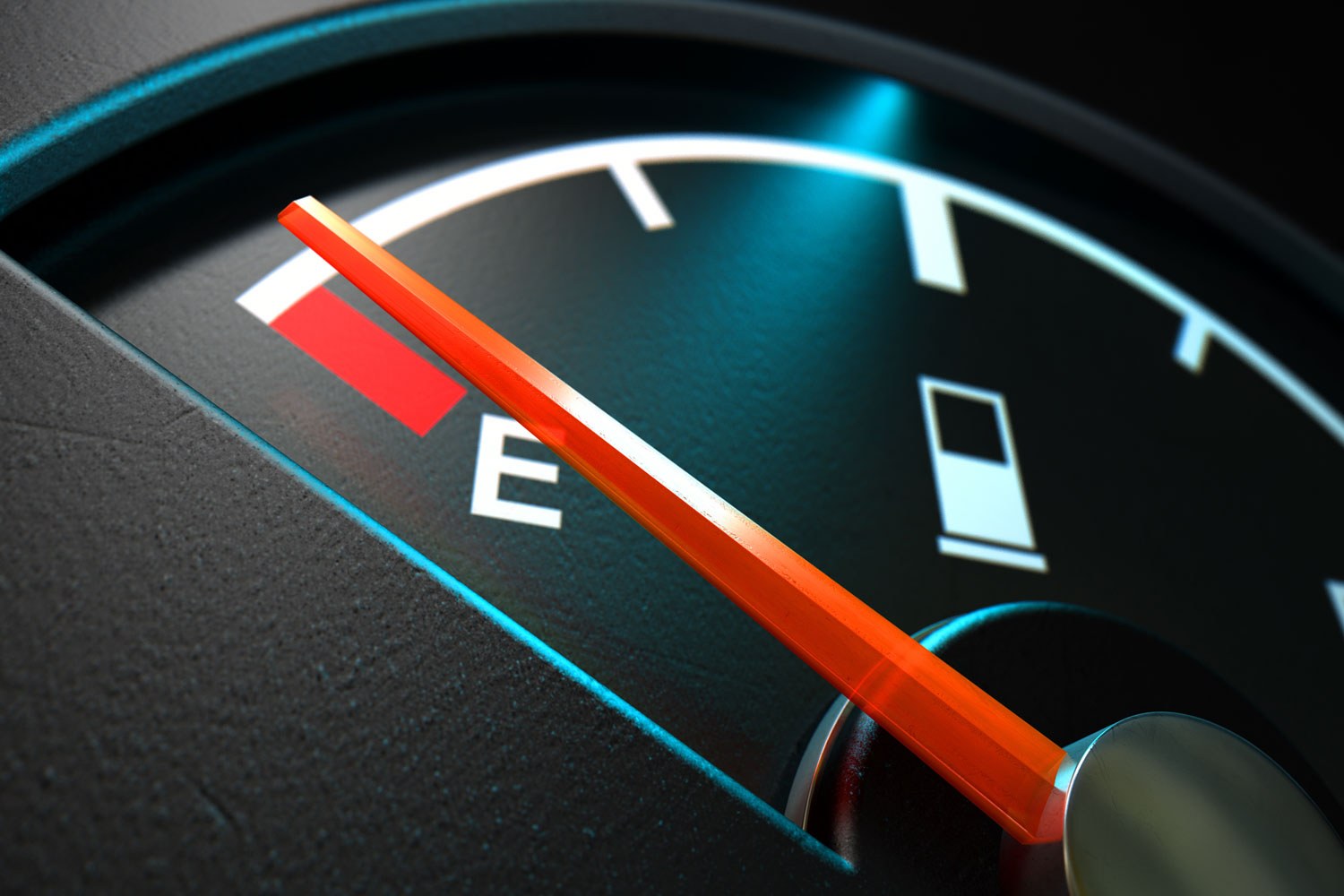3 Reasons Why You Shouldn't Run Your Car's Gas Tank to Almost Empty
An almost-dry tank can leave you stranded and potentially damage your vehicle.
 Shutterstock
Shutterstock
Article QuickTakes:
It can be tempting to try to squeeze every last mile out of a tank of gas, especially when fuel prices are high. But putting off a fill-up until your fuel gauge is resting on "E" can be risky for your vehicle's fuel system components — and for your odds of making it to your destination safely.
Here are three reasons why you shouldn't run your fuel tank nearly empty.
1. Running Out Of Gas Can Cause Fuel Pump Damage
Whether a fuel pump is installed inside or outside a vehicle's tank, it requires a steady flow of fuel to function properly. Fuel moving through the pump serves as both a lubricant for the pump's internal mechanism and as a coolant, helping to prevent the pump from overheating.
Can running out of gas damage a fuel pump? Yes.
When the level of fuel in a fuel tank gets very low, that constant flow through the pump can be interrupted. This is because the pump's intake can't reach into the very bottom of the tank or the motion of the vehicle pulls the gas away from it, intermittently leaving the intake high and dry. Low fuel also puts extra strain on the pump. Since there is less pressure pushing fuel into the pump, the pump must work harder to draw it in. In a worst-case scenario,
2. Debris Collects at the Bottom of an Empty Gas Tank
Fuel filter clogs can be caused by debris at the bottom of an empty gas tank. The bottom of a fuel tank — like other tanks — gathers all sorts of detritus over the course of a vehicle's lifetime. That gunk can include flakes of metal from inside the fuel tank itself, dirt and grime that flow in during the fueling process, and even debris sucked out of the bottom of a gas station's own nearly empty gas tank.
The lower the fuel level gets in your vehicle, the more likely it is that this gunk will be pulled toward the pump. The filter element that protects the intake will catch some of it, and inline fuel filters farther down in the fuel system will probably snag the rest, but with enough exposure to an almost empty fuel tank, those filters can get clogged or the pump itself could become damaged internally. This can lead to a loss of power, reduced fuel efficiency, and even stalling or a no-start condition.
3. You Can Get Stranded if Your Fuel Gauge Isn’t Totally Accurate
Perhaps the most obvious danger associated with driving on an almost-empty fuel tank is getting stranded somewhere because you've run out of gas. Fuel gauges aren't always an accurate representation of the actual amount of gasoline that's available, and if the reading is a little optimistic, you could end up with an empty gas tank and a need to call roadside assistance.
It’s also useful to determine how many gallons of gas your car’s tank holds. Your owner’s manual will have a specifications section with this information.



